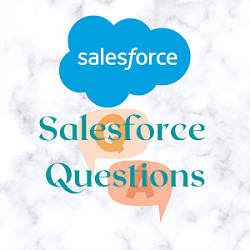To crack a Salesforce developer interview, you'll need a solid understanding of Salesforce development concepts, along with practical experience working on Salesforce projects. Here's a guide on how to prepare and which modules to focus on:
Understand Salesforce Architecture and Data Model: Learn about Salesforce's multi-tenant architecture, data model (objects, fields, relationships), and how data is stored and accessed.
Learn Apex Programming Language: Apex is Salesforce's proprietary programming language used for building custom business logic and integrations. Focus on the following areas:
- Data Types and Variables
- Control Structures (if-else, loops)
- Apex Classes and Methods
- SOQL (Salesforce Object Query Language)
- DML Operations (insert, update, delete)
- Triggers
- Exception Handling
- Governor Limits
Master Lightning Web Components (LWC): LWC is Salesforce's modern UI framework for building web components on the Lightning platform. Key areas to focus on include:
- Component Lifecycle
- Data Binding
- Events and Event Handling
- Lightning Data Service
- Apex Integration
Explore Salesforce Integration: Understand how to integrate Salesforce with external systems using various integration techniques such as REST API, SOAP API, and Platform Events.
Learn Salesforce Development Tools: Familiarize yourself with Salesforce development tools such as Salesforce DX (SFDX), Visual Studio Code, and the Salesforce Command-Line Interface (CLI).
Gain Practical Experience: Work on real-world Salesforce projects, either through internships, freelance work, or personal projects. Hands-on experience is invaluable when it comes to cracking interviews.
Prepare for Scenario-Based Questions: Be ready to answer scenario-based questions where you're asked to solve a problem using Salesforce development concepts. Practice problem-solving and critical thinking.
Stay Updated: Keep yourself updated with the latest developments in the Salesforce ecosystem, including new features, best practices, and updates to the platform.
Practice Interview Questions: Practice answering common interview questions related to Salesforce development, including questions on Apex, Lightning, integrations, and problem-solving scenarios.
Showcase Your Projects: If you've worked on Salesforce projects in the past, be prepared to showcase your work and explain your role in those projects during the interview.
By focusing on these areas and gaining practical experience, you'll be well-prepared to crack a Salesforce developer interview. Remember to approach each interview with confidence, enthusiasm, and a willingness to learn. Good luck!


0 Comments
Post a Comment